- Home
- Jane Arbor
Jasmine Harvest Page 12
Jasmine Harvest Read online
Page 12
Before the tart leading question was half put she was regretting the cheapness of it, and when he replied, knew she had asked for it and deserved what she got.
He said, “At a guess, at least one. Though if the number is more and you’ll indent tomorrow for the full list, I daresay I shall be willing to supply it. And can you blame me? Having extended myself to kiss Betsy for her pleasure, and having kissed you on an impulse which patently afforded no pleasure to either of us, don’t I rate some enjoyment of my own? Whose party is it, anyway?”
At the unruffled tone of that, at the hint of laughter behind it which, as had happened before, made nonsense of her own dudgeon, Caroline was sorely tempted to turn about—the movement would bring them face to face and very close—and to lift up her lips willingly to his and show him, show him just how passionately she could answer him, kiss for kiss, if she dared. But she listened to the voice inside her which said headily, “Why don’t you?” for no more than a moment. Then her pride took over, refusing to stand in line for his favors between Betsy and Ariane and only just in front of such other possibles as might take his casual fancy before the evening was over. And as there seemed no adequate reply with which to counter his last challenge, she made none and continued to keep her distance ahead of him in silence.
In the house again Paul stopped to speak to a couple she did not know and she slipped away from him into the salon where the floor-show had already begun.
It was colorful, adroit, risqué and, after the fashion of French cabarets, went on too long. By the time it was over, by common consent the party was too, and even Betsy was ready to leave when Caroline was. Back at the villa neither wanted the snacks or the carafe of wine which Marie had left ready on a tray; they talked “party” over cigarettes instead, while Caroline braced herself to the thing she had resolved must be said, pierce Betsy’s bubble of elation as it might.
At last, quietly and into a small silence, she dropped it. “Bet, let’s go home,” she said.
Betsy stared at her, as if in distrust of her own hearing. “Go home? Back to England? Now? What an utterly mad thing to suggest!” she exploded.
“It isn’t. Look, I know you can’t get back into the flat until Uncle Ralph and Aunt Clio come home. But you could come and stay with me, or if that sounds too dreary to you, couldn’t you still join the Drages in Italy? Or we could both stop off in Paris for a while ... anywhere, wherever you like, as long as it’s away from here,” urged Caroline, guilty in the knowledge that, equally with her own concern for Betsy, her suggestion had stemmed from her own fight for survival from Pascal’s deadly charm.
But Betsy was adamant, blind to a wisdom which she saw only as a craven surrender. “Not on your life,” she said: “I’m not stirring until I have to. Not now.” Pausing and making a small importance of stubbing out her cigarette, she did not look at Caroline as she added, “I hadn’t told you; I sort of wanted to hug it to myself for a bit. But tonight things changed ... between Paul and me. You know I said I’d bet he would spend the whole evening with Ariane? Well, he didn’t. He was with me quite a lot of the time, and when we had danced once, he took me to the garden-room and he kissed me. And not just mistletoe either. Or shotgun on my side. He made love to me ... really. You know—”
Caroline said, “I can guess. But don’t you see what danger and misery for yourself you may be courting if he didn’t mean anything by it? And ask yourself—how could he, sincerely? You’ve seen him with Ariane; you’ve heard the talk about them; you know as well as I do the amount of time he spends with her and, not least, you’ve heard how she speaks of him—as if she’d taken out squatter’s rights in him already. Oh, Bet dear, do run before it’s too late, and if you won’t run for your own sake, you might do it for Edward’s!”
“Edward’s?” Betsy spoke his name as if he were a stranger to her. “But you don’t imagine, do you, that I can feel the same about him now? Paul has never been as sweet with me as he was tonight, and why should you think you’ve a right to judge how little or how much he meant by it when he kissed me?”
“Perhaps I haven’t, except that I think he must have been in rather a thorough-going amorous mood, that’s all.”
“Must have been? What do you mean?”
“Just this.” Caroline’s decision to say it had been swift and possibly rash. “He had said earlier that he wanted me to see the jasmine in full bloom and scent, so before the floor show came on he suggested we should walk down there, and he chose to try to kiss me on the way back.”
“To—? Just before the cabaret? But that—that couldn’t have been long after he had been with me in the garden room!”
“No, I imagine not.”
“But—I don’t understand! You—and Paul? Why, he’s never—I mean, neither of you has ever looked at the other, so why should he suddenly make love to you?”
“He didn’t. Don’t think it. I’ve only told you about it in order to point the moral. Because when I’d been kissed just about as pointlessly as ever in my experience and told him so, that piqued him into admitting it wasn’t likely to be his last effort of the evening and possibly not the last of several.” Pitying the crumpled perplexity on Betsy’s face, Caroline added gently, “I’m sorry, Bet, but do you see now why I thought it best to tell you?”
“I suppose so. The moral being that I may not have been the—first, or more important to him than you or any of the others? But so what, if I’m not—yet? While there’s anything like a remote chance for me against Ariane, I’m not leaving the field to her by running away to England or to Italy or wherever. Besides,” Betsy appealed, “don’t you know anything about loving, Caro? For instance, that when it’s the real thing, you’d rather have nothing than settle for second best in its place, and that until a man abandons you flat or lets you know for certain that someone else has beaten you to it, you don’t give it best or give up hope that it isn’t true?”
Caroline said dryly, “Believe it or not, I do know.”
Betsy was instantly contrite. “That was mean of me. You do, don’t you? Roy—”
“It’s all right. I’ve got over Roy. I only meant I can remember what it was like—hoping. And I suppose I should have known that when you think you’re in love, all the cautionary warnings in the world couldn’t make you want to save yourself from the consequences, could they?”
Betsy shook her head. “It’s even simpler than that. You don’t foresee any consequences except the ones you want. But does that mean you won’t go on nagging me to run away from Paul, and that you’ll stay too?”
“I don’t promise not to tell you again that you’d be wise to cut your losses. But I’ll stay as long as you think you must,” said Caroline. And she knew as she spoke that until she used a ruthless will against it, love had left her no more choice than Betsy had.
The next morning, on the pretext of thanking Paul for the party, Betsy telephoned him, only to be met by Simone’s stonewall of “Monsieur is out” which Caroline agreed was difficult to believe so early after a “night before” like the previous one.
“I bet she’s lying, and I hope he gives her a rocket when he hears that I rang. I left a message for him to ring me back. But I don’t know—do you think it might be a good idea if, just for once, I paid him in Simone’s coin and wasn’t here when he does?” Betsy appealed.
“Always supposing he does, and he may not,” Caroline warned.
Betsy bit her lip. “I’ll face that when he hasn’t. I’ve got to hope he’s going to, don’t you see? But as it’s likely to drive me crackers to stay within reach of that telephone without using it, let’s go out for the whole day, shall we, so that Marie can tell him—truthfully—that I’m out when he does ring?”
As Betsy’s first show of independence, Caroline welcomed the idea. Accordingly they drove over to Nice and spent the whole day there, window-shopping in the morning and taking a trip by motor-launch out to the lovely Lerins Isles in the afternoon. On their return they treated themse
lves to an a la carte dinner on the Promenade des Anglais and drove back at dusk to hear from Marie that there had been no telephone calls at all.
Betsy’s dismay at the news was pitiful to see. “He can’t mean to leave ... last night just hanging in the air!” she said, seeking a reassurance which Caroline longed to give her and could not. However, though it was difficult, she managed to persuade Betsy to the dignity of waiting for Paul to make the first move—which he had not done by noon of the next day, when Caroline was due to lunch with Ursule and Berthin at their cottage.
“Come with me?” she urged Betsy. “Ursule loves having people to meals, and afterwards Berthin is going to take me to Grasse to see over some of the perfumeries.”
But Betsy chose to see disloyalty to Paul in accepting hospitality from Ursule. “I’ll go down to Cannes and have a swim and probably get my hair done—or something,” she said listlessly, leaving Caroline in little doubt that she would have tried again to get in touch with Paul before the day was over.
At the cottage, Ursule, free now of the plaster cast on her ankle, was ready with her usual welcome to Caroline. They had an aperitif before Berthin came in, and over a meal—clear soup, a vol-au-vent of prawns and a fluffy cold soufflé—which a cordon bleu chef could not have faulted—Paul’s name was not mentioned between the three of them. But soon after Caroline and Berthin were on their way to Grasse, Berthin said,
“I’ve something rather odd and unexpected to tell you. The day before yesterday Paul—of all people!—came down to the estate office and without the flicker of an eyelid at the effrontery of it, wanted to know if it wasn’t high time I gave him a responsible job! Or perhaps I rated him as incapable of holding one down—was that it? he demanded!”
'Caroline caught her breath. “The day before yesterday? That was the morning right after the party!”
Berthin turned to grin at her. “Exactly—which added to the oddity! What’s more, I was a bit late myself; he was already there waiting for me, and I got the impression he was prepared to take me to task for not being at my desk on the stroke of nine!” Berthin paused and chuckled. “You know, Caroline, exasperating as the fellow can be, one can’t help liking him for his sheer audacity, can one?”
“No—but what did you say to him?”
“First, I swallowed hard on at least six trenchant things I could have said. Then I threw the ball back to him by asking him what particular responsible job he had in mind.”
“And—?”
“Well, after a while we agreed he should take over the recruitment of enough labor to clear Fragonard of the worst of its debris and organize at least a skeleton patrol for it. And when I told him his guess was as good as mine as to how many hands we were likely to get for the jasmine picking, he took that on too. Since when,” Berthin added on another chuckle, “I can only conclude he has been out and about on both projects, for I haven’t set eyes on him or heard from him.”
“But didn’t he explain his change of front or say why he had suddenly decided to co-operate with you?” puzzled Caroline.
“Ah, I knew better than to ask him. But as we shook hands on the deal he looked me straight in the eye and said, ‘Aren’t you afraid this is the thin end of the wedge, because you ought to be?’ To which, as he intended I should, I said, ‘The thin end of what wedge, my friend?’ and he laughed. ‘Of the probability, if you don’t make better speed with your courting, of finding yourself out of a job—what else? he said, and was out of the room before I could come back at him that he needn’t be so cryptic, since it wasn’t hard to guess what he meant.”
Caroline moistened her lips. “You think he meant he would be marrying and so claiming the estate back before long?”
“Well, don’t you? Though why he should imagine his timing has ever been in danger from my courting anyone, I can’t think,” said Berthin, and Caroline refrained from telling him why.
In a town the size of Grasse seventeen factories had sounded a formidable number. But Caroline, was to find that for the most part they were small, pleasant buildings run as family concerns, many of them surrounded by their own subtropical gardens and all of them bathed in the inescapable sweet aroma which pervaded the whole town.
It was impossible to visit them all, so Berthin chose two of the larger to show her, from their cool grille-shaded courtyards where the flower-tumbrils unloaded, to distilling floors, volatile extraction rooms, experiment laboratories, packing departments and sales salons. In one perfumery she was shown Lalique-designed perfume flagons worth a modest ransom; in an inner sanctum of the other she was privileged to meet its Monsieur le Nez—one of the acknowledged uncrowned kings of the industry at the dictates of whose skilled, inspired noses the haunting bouquet of every glamorous man-made scent in the world must be conceived and born.
Afterwards Berthin had business at a third factory, and when they had arranged a later rendezvous at its, entrance, Caroline went off for a tour of the town.
The Fragonard Museum was closed for the day, but she visited the cathedral and watched myriads of swifts wheeling and swooping about its towers before going to sit in the shade of the plane-trees on the Cours while she drank iced coffee and enjoyed the view across the valley towards the sea.
She was early at her meeting-place with Berthin and he was not yet there. But the station wagon was, and she had just got into it when someone she had no wish to see came out of the courtyard behind the gates. But Henri Mercier had seen her too and sauntering over to speak to her with no noticeable embarrassment at the memory of their last encounter.
He asked her what she was doing in Grasse and she told him briefly; whom she was with, the perfumeries she had seen and why she was waiting for Berthin now. He confirmed that he worked in the laboratories of this one, but when she asked if André Mayence did too, he scowled.
“That character? Oh, yes, he works here too, which makes me wish I didn’t,” he said.
Caroline’s brows lifted. “I thought you were good friends?” she queried.
“Friends! With that one—after the way he sided against, me the other night? After the way he crept to Paul Pascal as if there were something in it for him? What do you think?” Henri retorted.
Caroline drew breath and gathered herself to tell him. “If you must know,” she said, “I think you came off a good deal better than you deserved at André’s hands, as well as at Paul’s. You were drunk; you behaved not far short of criminally with those fire-crackers, and you were pretty lucky to have someone like André to drive you home, because if you hadn’t you might have done something really criminal or suicidal on the way!”
Momentarily Henri seemed taken aback by her vehemence. Then he sneered, “Well, well—how righteous can you get! So I’d had a few drinks, what of it? And what are drinks for at a party, if they aren’t meant to be used?”
“In this case, I daresay Paul expected his guests were civilized enough not to need throwing out in order to convince them they had had enough. And if you want to accuse him of putting temptation in your way, I’d remind you that he didn’t provide the fireworks—you brought them, and do you suppose he was going to stand by while you played at near-arson with them? Because even I know that in this drought and with the crops like tinder, it could well amount to that.”
“Arson? There’s a nasty idea to put into a fellow’s head!” Henri laughed unpleasantly. “But since you ask me—yes, I could suppose that Monsieur P. mightn’t be all that worried if someone not so closely connected with him that he could be implicated should happen to drop a handy match in one or two of his precious plantations. After all, it’s common knowledge enough, isn’t it, that he couldn’t care less about Pascal’s crops as crops; only what they mean in hard cash? And couldn’t he hope to keep even his more expensive petites amies happy on what he could get in the way of fire insurance if he handled the thing intelligently?”
Words failing her, Caroline could only stare. Then she choked, “How dare you? How dare you?” and onc
e more found her anger at a loss. Later, she knew, she would regret the moment’s missed chance to take a stand for Paul. But just then she could only stutter and hate Henri’s foolish, evil leer. And before she could collect herself sufficiently to put it out of countenance, Berthin was there and with a jaunty “Au ’voir” which she ignored, Henri strolled away.
Berthin looked after him and then at Caroline’s heightened color. As he drove off, he asked, “Ought I know that young man? I hope I didn’t interrupt anything?”
“No ... Yes. That is, I was thankful to see you. You may know him, I don’t know. His name is Mercier; he works in the perfumery you’ve just been to. I’ve met him several times in Cannes, and he was at Paul’s party the other night,” said Caroline.
“And he was making himself a nuisance to you now?”
“Not in the way you mean, I think. But he was seeing fit to—to slander Paul.”
Berthin compressed his lips and nodded. “So? And when I arrived on the scene, you were springing to Paul’s defence?”
“I’m afraid I wasn’t. Now I can think of a dozen things I ought to have said, but you know how it is when you’re taken aback by sheer brazen impudence?”
“Yes, indeed. But would you care to repeat what he said about Paul which roused you so?”
“Well, it arose out of a nasty incident at the party—” At the end of her account of the ugly scene on the terrace and Paul’s summary treatment of Henri, Caroline added, “I believe he was expecting sympathy from me. But I told him I thought he had asked for all he got.”
“I see. But you mentioned slander of Paul?”
“Yes. He had the nerve to suggest that even if the plantations near Maison Pascal had been endangered by his idiocy, Paul wouldn’t really care, except insofar as it touched his pocket.”
“Sale bête!” Berthin’s tone boded ill for Henri if he had been there to hear it. Frowning, Berthin was silent for a moment. Then,

 High Master of Clere
High Master of Clere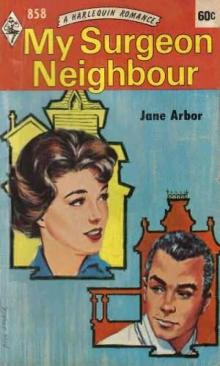 My Surgeon Neighbour
My Surgeon Neighbour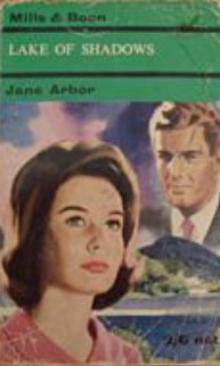 Lake of Shadows
Lake of Shadows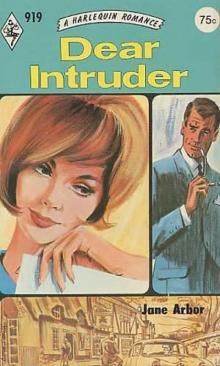 Dear Intruder
Dear Intruder Flash of Emerald
Flash of Emerald Return to Silbersee
Return to Silbersee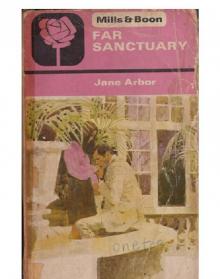 Far Sanctuary
Far Sanctuary Sandflower
Sandflower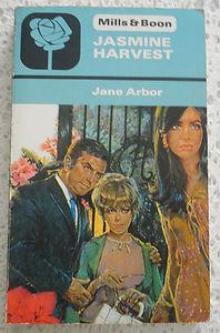 Jasmine Harvest
Jasmine Harvest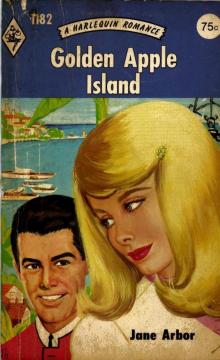 Golden Apple Island
Golden Apple Island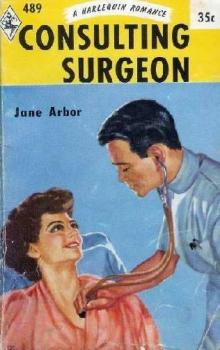 Consulting Surgeon
Consulting Surgeon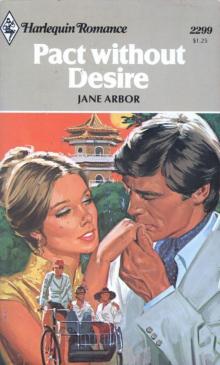 Pact without desire
Pact without desire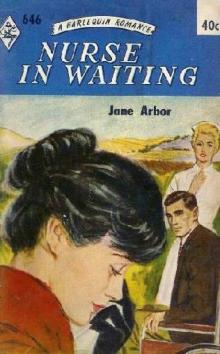 Nurse in Waiting
Nurse in Waiting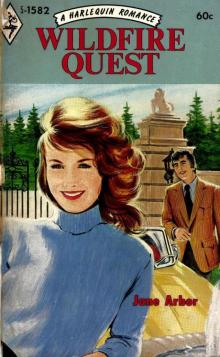 Wildfire Quest
Wildfire Quest Roman Summer
Roman Summer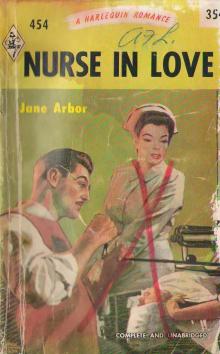 Nurse in Love
Nurse in Love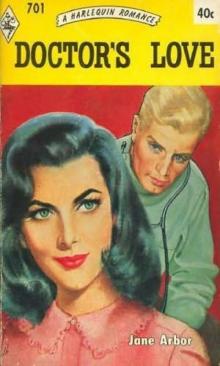 Doctor's Love
Doctor's Love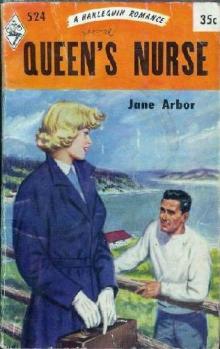 Queen's Nurse
Queen's Nurse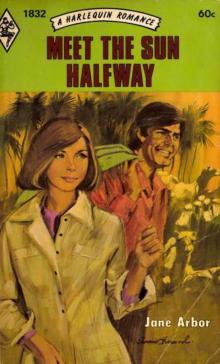 Meet the Sun Halfway
Meet the Sun Halfway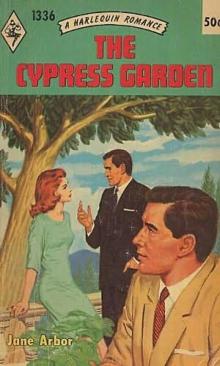 The Cypress Garden
The Cypress Garden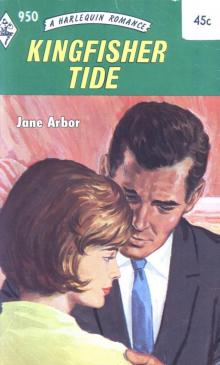 Kingfisher Tide
Kingfisher Tide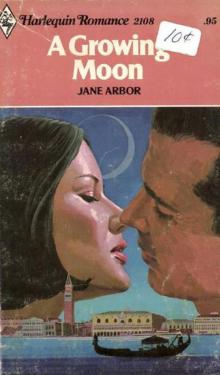 A Growing Moon
A Growing Moon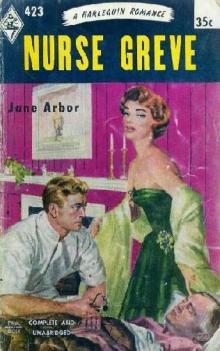 Nurse Greve
Nurse Greve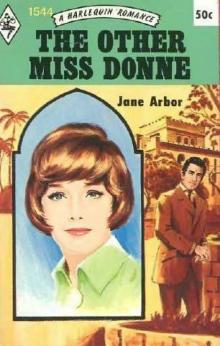 The Other Miss Donne
The Other Miss Donne